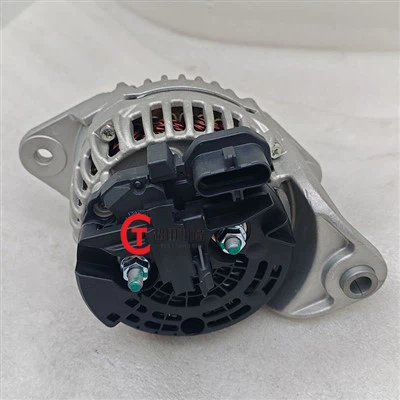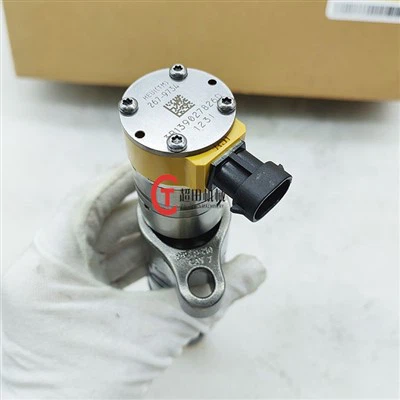Hey there! As a controller supplier, I've been in the thick of the controller game for quite some time. One question that keeps popping up is, "What's the difference between a centralized controller and a decentralized controller?" Well, let's dive right in and break it down.


Centralized Controllers: The Big Boss Approach
A centralized controller is like the CEO of a company. It's the one in charge, making all the major decisions and calling the shots. In a system with a centralized controller, all the data and control signals flow through a single point. This single point of control has its perks.
First off, it's super easy to manage. Since everything is controlled from one place, you don't have to worry about coordinating multiple controllers. It's like having one person in charge of a project; you know exactly where to go for answers. For example, in a small manufacturing plant, a centralized controller can manage all the machines on the production line. You can program it to start and stop the machines at specific times, adjust the speed, and monitor the overall production output.
Another advantage is that it provides a high level of consistency. Because all the decisions are made by one controller, there's less chance of conflicting commands. This is crucial in applications where precision is key, like in a robotic assembly line. The centralized controller can ensure that each robot moves in sync, performing its tasks with the same level of accuracy every time.
However, centralized controllers also have their drawbacks. One of the biggest issues is the single point of failure. If the centralized controller goes down, the entire system can grind to a halt. It's like if the CEO of a company suddenly gets sick; the whole operation can be affected. Also, as the system grows, the centralized controller can become overwhelmed. It has to process all the data and make all the decisions, which can slow down the system and lead to performance issues.
Decentralized Controllers: The Team Player Approach
On the other hand, a decentralized controller is like a team of experts working together. Instead of having one central authority, there are multiple controllers that communicate with each other. Each controller is responsible for a specific part of the system, and they work together to achieve the overall goal.
One of the main advantages of decentralized controllers is their resilience. Since there's no single point of failure, if one controller goes down, the others can still keep the system running. It's like a sports team; if one player gets injured, the rest of the team can still play and try to win the game. In a large-scale power grid, decentralized controllers can be used to manage different sections of the grid. If one controller fails, the other controllers can adjust the power flow to ensure that the grid remains stable.
Decentralized controllers also offer better scalability. As the system grows, you can simply add more controllers without overloading any single one. This makes them ideal for large and complex systems, like smart cities. In a smart city, decentralized controllers can be used to manage traffic, energy consumption, and waste management. Each controller can focus on a specific area, and they can communicate with each other to optimize the overall performance of the city.
But decentralized controllers aren't perfect either. They can be more difficult to manage compared to centralized controllers. Since there are multiple controllers, you have to make sure they're all working together properly. This requires more coordination and communication, which can be a challenge. Also, the decentralized nature of the system can sometimes lead to inconsistencies. Different controllers may have different algorithms or settings, which can result in conflicting commands.
Real-World Examples
To better understand the difference between centralized and decentralized controllers, let's look at some real-world examples.
In the automotive industry, centralized controllers are commonly used in older vehicles. The engine control unit (ECU) is a centralized controller that manages the engine's performance. It receives data from various sensors and makes decisions on things like fuel injection, ignition timing, and idle speed. However, as vehicles become more complex, with features like advanced driver assistance systems (ADAS) and electric powertrains, decentralized controllers are becoming more popular. Each subsystem, like the ADAS sensors or the battery management system, has its own controller, and they communicate with each other to ensure the vehicle operates safely and efficiently.
In the field of industrial automation, centralized controllers are often used in small to medium-sized factories. They can manage the production process, from raw material handling to finished product packaging. But for large-scale manufacturing plants, decentralized controllers are the way to go. They can handle the complexity of multiple production lines, robots, and conveyor belts, and ensure that everything works together smoothly.
Which One Should You Choose?
So, which type of controller is right for you? Well, it depends on your specific needs and requirements. If you have a small and simple system, a centralized controller may be the best option. It's easy to manage and provides a high level of consistency. But if you have a large and complex system, or if you need a system that's resilient and scalable, a decentralized controller may be more suitable.
As a controller supplier, I've seen firsthand the benefits and challenges of both centralized and decentralized controllers. I can help you evaluate your system and determine which type of controller is the best fit. Whether you're looking for a 221-8874 ECM Controller for Excavator E345C E329DL E330DL E320DL Excavator or a custom-designed controller for your unique application, I've got you covered.
If you're interested in learning more about controllers or if you're ready to start a project, don't hesitate to reach out. I'm here to answer your questions and help you find the perfect solution for your needs. Let's work together to take your system to the next level!
References
- "Control Systems Engineering" by Norman S. Nise
- "Industrial Automation and Control" by David A. Bell
- Various industry reports and whitepapers on controller technology






